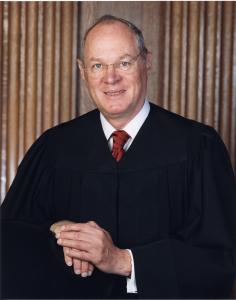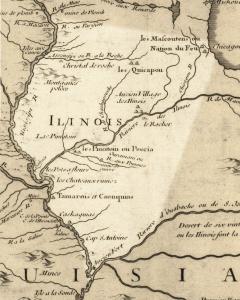With Supreme Court Associate Justice Anthony Kennedy retiring at the end of July [1], and with President Trump making the appointment to replace him, with a Republican Senate prepared to back his choice, it seems, to some, all but certain that there will at last be a majority to overturn Roe v. Wade. Your humble servant is not so certain this is so, but there is a distinct possibility that Roe will soon lose its status as the law of the land.
There’s no mystery as to what Catholic social teaching has to say on the matter of abortion, and what the government is obligated to do about it.
“The inalienable right to life of every innocent human individual is a constitutive element of a civil society and its legislation:
“’The inalienable rights of the person must be recognized and respected by civil society and the political authority. These human rights depend neither on single individuals nor on parents; nor do they represent a concession made by society and the state; they belong to human nature and are inherent in the person by virtue of the creative act from which the person took his origin. Among such fundamental rights one should mention in this regard every human being’s right to life and physical integrity from the moment of conception until death.’
 “’The moment a positive law deprives a category of human beings of the protection which civil legislation ought to accord them, the state is denying the equality of all before the law. When the state does not place its power at the service of the rights of each citizen, and in particular of the more vulnerable, the very foundations of a state based on law are undermined. . . . As a consequence of the respect and protection which must be ensured for the unborn child from the moment of conception, the law must provide appropriate penal sanctions for every deliberate violation of the child’s rights.’” (Catechism of the Catholic Church, §2273) [2]
“’The moment a positive law deprives a category of human beings of the protection which civil legislation ought to accord them, the state is denying the equality of all before the law. When the state does not place its power at the service of the rights of each citizen, and in particular of the more vulnerable, the very foundations of a state based on law are undermined. . . . As a consequence of the respect and protection which must be ensured for the unborn child from the moment of conception, the law must provide appropriate penal sanctions for every deliberate violation of the child’s rights.’” (Catechism of the Catholic Church, §2273) [2]
That’s clear enough. Killing innocent human beings should be against the law. Therefore, abortion should be against the law. Otherwise, the very idea of the rule of law is undermined.
But overturning Roe won’t make abortion illegal. It will simply allow the states to make abortion illegal if they want to do so. This isn’t to say that removing Roe from the legal landscape won’t be a good thing. But the fight against abortion will not be over.
There are currently eight states that have the “right” to an abortion enshrined in their own law. [3] Those laws won’t magically disappear. And even where state law is more restrictive than Roe allows, it is not always the case that human life is protected from the moment of conception. Iowa and North Dakota ban abortion after six weeks of pregnancy, and Arkansas bans it after twelve weeks. Others provide exceptions for cases of rape or incest.
 The only way we could ensure a nationwide legal ban would be by constitutional amendment, and that would require two-thirds of both houses of Congress and three-fourths of the states. [4] Alternatively, two-thirds of the states could apply for the calling of a convention to propose amendments, which, again, would have to be accepted by three-fourths of the states.
The only way we could ensure a nationwide legal ban would be by constitutional amendment, and that would require two-thirds of both houses of Congress and three-fourths of the states. [4] Alternatively, two-thirds of the states could apply for the calling of a convention to propose amendments, which, again, would have to be accepted by three-fourths of the states.
So, overturning Roe will not remove the abortion atrocity from the land. It thus appears that once Roe is gone, we’ll need another strategy. Moreover, we should keep in mind that we should want to do more than simply make abortion illegal; we want abortions to actually stop. That means that we need to, as a country, remove as many incentives for abortion as possible.
There is good reason to believe that economic considerations are a major factor in choosing to have an abortion [5], and this is one area of concern where the most straightforward remedies are available. Constructing a society where every citizen has the assurance of a livable income, and access to medical care would doubtlessly go a long way toward de-incentivizing choices to have an abortion.
There are other reasons women choose abortions, of course. But the point here is that each of these reasons should be evaluated and responded to if we are going to reduce abortions to the lowest number possible. The goal is to end abortion, not simply make it illegal. The protection of innocent human life is too serious a matter to do otherwise.
The icon of St. Joseph the Worker is by Daniel Nichols.
Listen to Christian Democracy on live internet radio on Tuesdays at 10:30 p.m. Eastern time at WCAT Radio here, or listen to the podcast here on the Christian Democracy Patheos blog.
Please go like Christian Democracy on Facebook here. Join the discussion on Catholic social teaching here.











